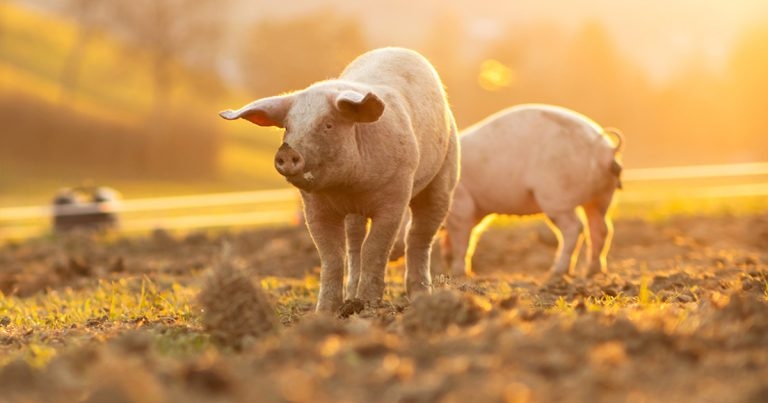11 Nov 2025
The RSPCA described the ban recommendation as “very encouraging”.

Image @ lightpoet / Adobe Stock (amended)
A leading animal welfare charity has welcomed a report advising the Government to ban the use of high-concentration carbon dioxide gas (CO2) to slaughter pigs.
A report by the Animal Welfare Committee, which advises Defra and the Scottish, Welsh and Northern Irish governments, concluded the CO2 method subjects pigs to “avoidable pain, distress or suffering”.
The committee has recommended the method be prohibited and that the industry should transition to alternative methods “as quickly as possible” within a maximum five-year timeframe.
Alternative methods examined in the report included the use of inert gases, such as argon, nitrogen or helium, or electrical stunning.
A Food Standards Agency slaughter sector survey in England and Wales published last year found that 90% of pigs were stunned with high-concentration CO2, up from 52% in 2013.
The RSPCA, which gathered 22,443 signatures earlier this year in a petition urging the Government to phase out CO2 killing, welcomed the committee’s report.
The charity’s head of public affairs, David Bowles, said: “The committee’s recommendation for a CO2 ban is very encouraging, potentially moving the industry a step nearer to a much more humane way of slaughtering pigs.”
RSPCA pig welfare expert Phoebe Hartnett added: “The stark reality of the impacts this gas has is why mandating a more humane alternative is so urgent.
“But currently, there is no commercially viable alternative available in the UK, which is why the RSPCA has been calling on the UK Government to fund commercial trials into humane alternatives, such as argon gas and improved electrical stunning.
“Commercial trials, industry-wide commitment and Government support to help slaughterhouses transition to a new method, all need to happen urgently.”
In response to the Animal Welfare Committee’s findings, a Defra spokesperson said: “This government wants to see the highest possible standards of animal welfare at slaughter.
“We are now carefully considering the findings of this report.”
The department said it is also reflecting on the results of the EU PigStun project, which researched non-aversive stunning systems, and is actively looking at alternative approaches.